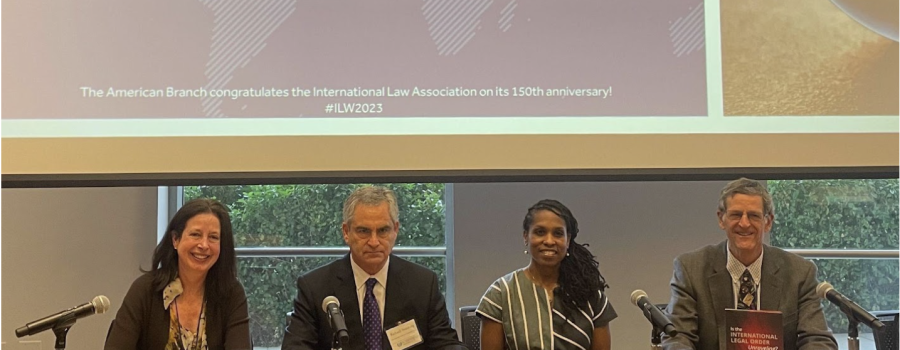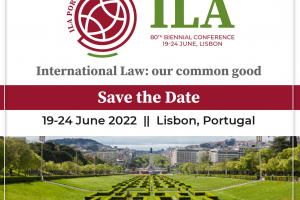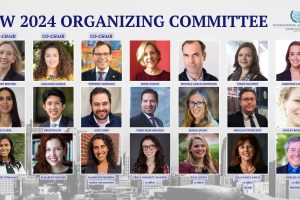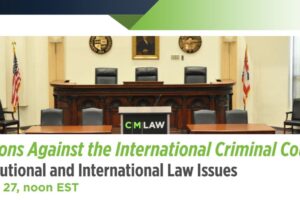Is the International Legal Order Unraveling? – Reflections on an ILW 2023 Panel
 By ABILA 2023 Student Ambassador Alexis Legaspi, Santa Clara University School of Law, J.D. Candidate
By ABILA 2023 Student Ambassador Alexis Legaspi, Santa Clara University School of Law, J.D. Candidate
This blog is part of a series of reflections on ILW 2023 by our Student Ambassadors. Each Student Ambassador engaged with a variety of panels and will be sharing their experiences over the spring and in the lead up to ILW 2024.
In times of social upheaval, regular natural disasters, outbreaks of conflict, rising tensions, and significant technological advancements, skepticism of the international legal order’s ability to navigate the residual chaos comes easily. The resulting discussions often ask, does each new crisis signal the death knell of the international legal order? Or – is the system transforming? The potential implications of this answer suggest these questions should be examined sooner rather than later, and new perspectives and actions implemented as soon as possible. Despite the current disorder of the world, there is hope for the international order. As panelist Professor David Sloss said, “[t]he greatest leaps forward in international legal rules come after crises or inflection points.”
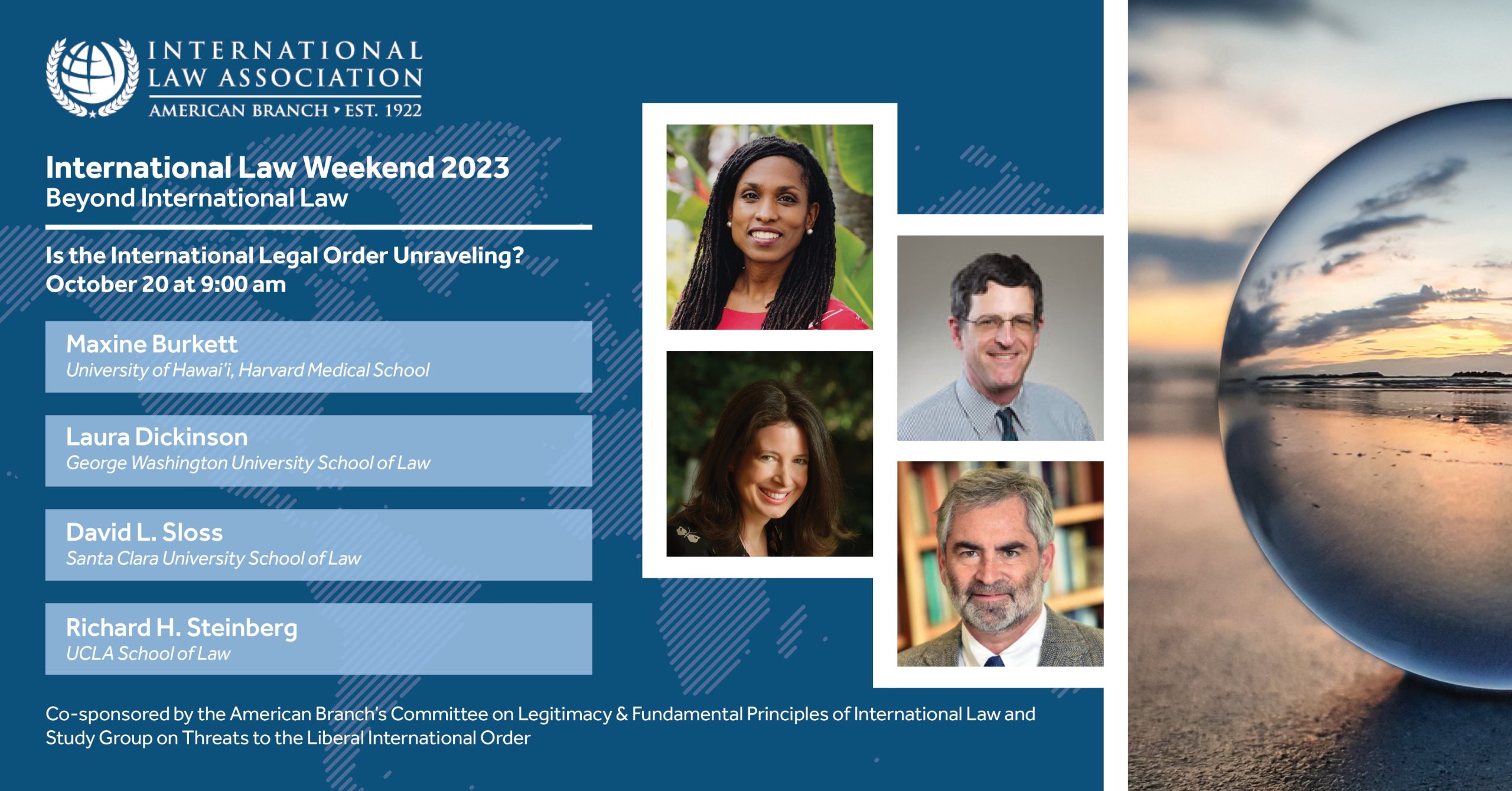
The American Branch Study Group on Threats to the Liberal International Legal Order undertook an effort to first consider, then answer the question of an unraveling institution, pro
ducing the book, Is the International Legal Order Unraveling?, which discusses the stability of the international legal order and current threats. On October 20, 2023, the first day of International Law Weekend, several of the book’s contributors participated in a panel named for the book. David Sloss, moderator and participant, joined fellow panelists–Maxine Burkett, Richard Steinberg, and Laura Dickinson–to explore the book’s perspectives and applications in light of international developments since the finalization of the manuscript, which occurred before Russia’s invasion of Ukraine. The panel’s topics covered climate change, international trade law, international humanitarian law, and governmental regimes. There is no doubt, the current order is under immense strain. But the order is not yet unraveling.
Maxine Burkett began the panel with an analysis of the need for the international order to address climate change. Speaking within her personal capacity, she concluded that urgent and systemwide changes are necessary to keep the world on track to adequately address climate change and keep the global average temperature below 2°C. As a policy matter, keeping the temperature increase to 1.5℃ (well below the 2℃ mark) will be a challenging task as global temperatures are expected to increase and then plateau. But it will “quite literally produce a whole new world.” The world is already experiencing “seismic shifts” in the climate with only a 1.2℃ increase–“fire-nadoes” in California, intense hurricanes exceeding records, and unprecedented heat waves in subarctic and arctic regions such as Siberia.
New challenges, such as climate-induced migration, are emerging. These challenges require both domestic and international legal orders to form durable and sustainable solutions. But the international order is built to address past disorders to the system, creating a pseudo-air of stability and impacting its ability to agilely confront novel issues. Increasing temperatures produce instability and are ultimately incompatible with maintaining the status quo. The international legal order is not unraveling but resides at an inflection point. The time has come to consider new opportunities to adequately confront the entropy brought about by climate change.
Richard Steinberg discussed international trade law, which is shifting from a rules-based to a sovereignty-based order driven by geopolitics. The World Trade Organization (WTO), a leading symbol of multilateral, rules-based trade, faces slow but steady degradation. Both the WTO’s rulemaking and adjudicatory functions are paralyzed, or at best, dormant. WTO power is split between the EU, US, and the BRICS (Brazil, Russia, India, China, and South Africa), with the EU and the US championing maintenance of the status quo, while the BRICS advocate for a revisionist approach. The confluence of the competing visions hinders any rulemaking, resulting in a deadlock. Similarly, differing views on the role of the WTO’s adjudication function render the mechanism inactive. Alternatively, States have increasingly acted unilaterally to resolve disputes, signaling a shift toward a sovereignty-based order.
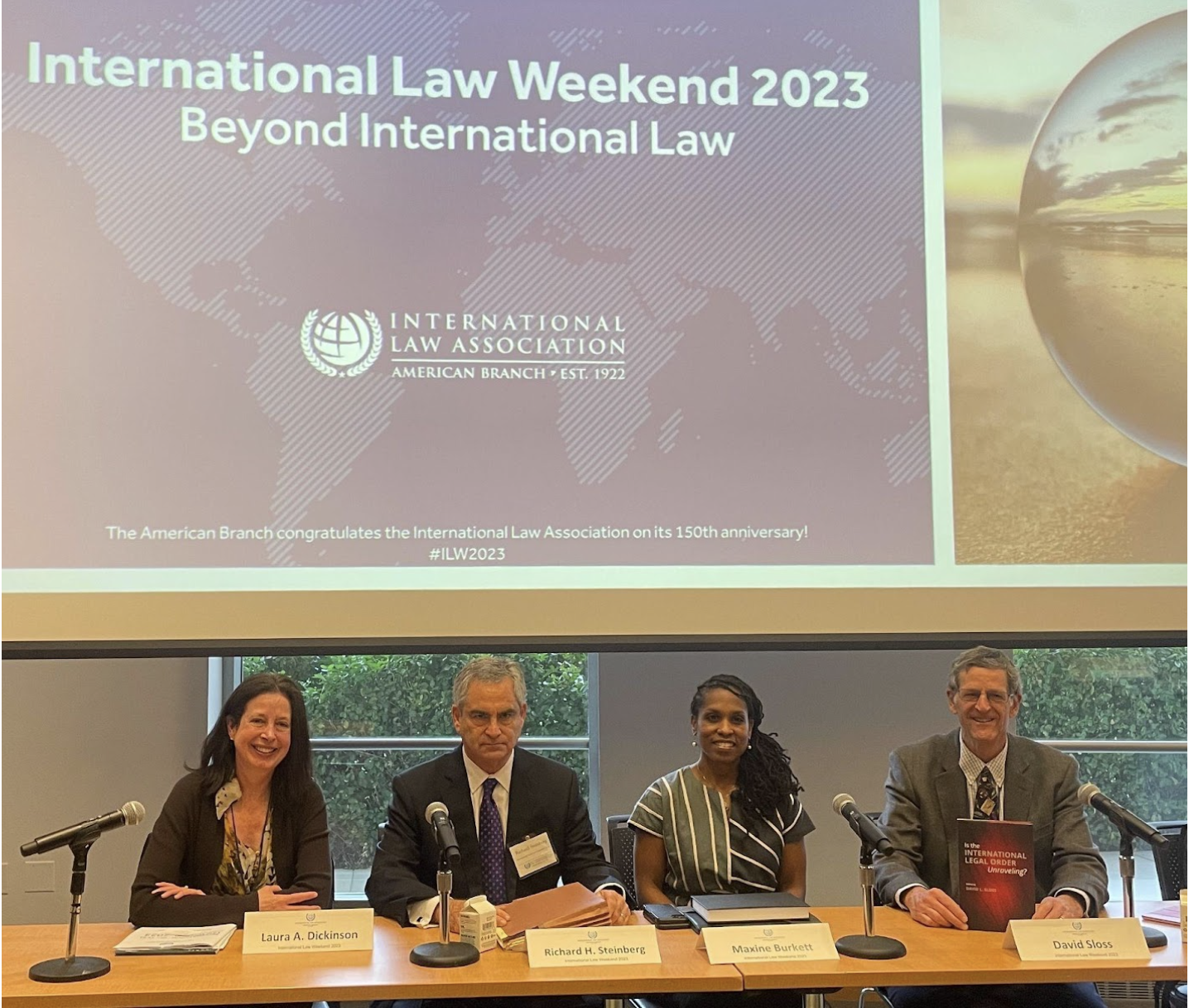 Photo of the panelists (L-R): Laura Dickinson, Richard Steinberg, Maxine Burkett, David Sloss
Photo of the panelists (L-R): Laura Dickinson, Richard Steinberg, Maxine Burkett, David Sloss
Geopolitical restructuring further aids the unraveling of the current order. While significant trade between the US and China still exists, the East-West walls grow brick by brick. China-Russia trade astronomically increased after Russia’s invasion of Ukraine prompted global economic sanctions. The realignment of international trade appears to be around geopolitical centers with a growing focus on building regional partnerships, such as between the US and the Indo-Pacific, leading to regional trade rules. International trade continues, but geopolitical influences are driving trade policy in a new direction.
Laura Dickinson presented on the status of international humanitarian law (IHL), which is enjoying a period of robust global support. The atrocities in the Ukraine-Russia and Gaza-Israel conflicts increased calls by States, organizations, and civil society, for accountability, adherence to and respect for IHL. Access to social media has been instrumental in the global urging of adherence to IHL by providing real-time information, exposing violations, and serving as platforms for civil society activism– highlighting positives of the controversial tech-based platforms. But immense challenges loom. The West’s use of incongruent and selective mainstream media coverage, particularly with the Gaza-Israel conflict, taints the hue of any perceived progress in IHL adherence. Despite general commitment to IHL’s core principles, noted rises in transnational terrorism, privatization of forces, weaponization of data, global urbanization, and hypocritical responses to the conduct of war, pit these principles against salient challenges and gaps in the IHL framework.
The inherent challenge of creating laws is producing a model that can apply to future unknowns. IHL formed in response to 19th- and 20th-century warfare, balancing military necessity with humanitarian values. This core notion of IHL and its widely accepted fundamental principles remain intact, but contemporary challenges raise questions as to how IHL applies, to what extent States and other actors will exploit its malleability, and the ability for parties to balance IHL principles with new means and methods of warfare. The international order would be best served to address these concerns immediately and proactively to have the best chance at corralling States before problems outpace legal capabilities. As Benjamin Franklin reminds us, “[a]n ounce of prevention is worth a pound of cure.”
Finally, David Sloss rounded out the panel’s presentation with an exploration of governmental regime trends and the implication for the international legal order. The current trend in regimes reveals a decline in the number of democratic States and a corresponding rise in authoritarian States. The shift between regimes can have significant implications for the international order. But, despite “creeping autocracy,” the overall picture of the international order is fairly stable.
When analyzing eight substantive areas of the international legal order–jus in bello, jus ad bellum, trade, human rights, criminal law, investment, bribery, and migration–all but migration operate under a rules-based order, and most are stable. But during the rise of autocracies, three areas face a weakening rules-based order–human rights, jus ad bellum, and trade. The creeping trend of autocracies arguably contributes to the instability. Enforcement of human rights depends on the domestic legal order, and autocracies have always afforded less protection for human rights. Increasing autocratization of China and Russia contributes to a paralysis in the UN Security Council, which needs action to remain robust. And China’s rising power and impact on rising authoritarianism affect international trade. Yet, despite these concerns, the other categories have remained reasonably intact and stable.
The rules-based international legal order unquestionably confronts serious challenges–some with the ability to literally change the world’s landscape. Yet, the international order is not unraveling in the catastrophic sense of the word. While the legal order is far from disintegrating, it is at a serious inflection point and the status quo cannot continue. States must address these threats to reinforce and progress the rules-based order.

